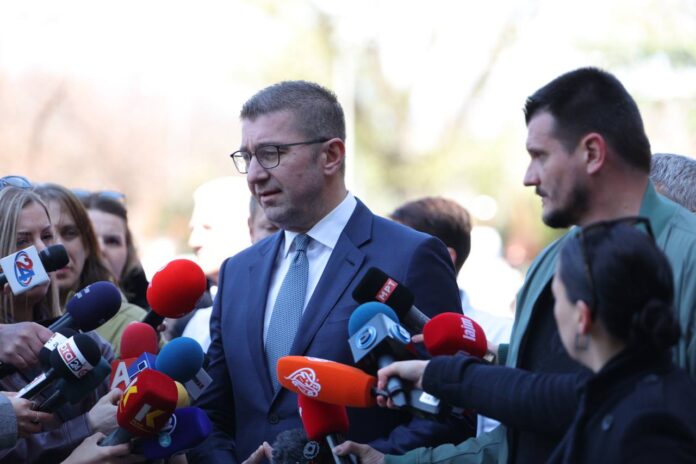Increase diagnoses and screening must stop, says advisory body RVS. ‘This way people become unnecessary cancer patients’
/s3/static.nrc.nl/images/gn4/stripped/data130911221-6c7103.jpg|https://images.nrc.nl/bINIdiuoj5Cj4YyhGlzXrlrtHeM=/1920x/filters:no_upscale()/s3/static.nrc.nl/images/gn4/stripped/data130911221-6c7103.jpg|https://images.nrc.nl/4JS_smKz4BN2O2F_9fuPYwAoLEY=/5760x/filters:no_upscale()/s3/static.nrc.nl/images/gn4/stripped/data130911221-6c7103.jpg)
The growth of low -threshold and ever -earlier screening and diagnoses in healthcare must come to an end. That increase has « significant disadvantages » that « remain structurally underexposed. » The Council for Public Health and Society (RVS) warns this Tuesday in the report Everyone almost sick.
The increase in screening and diagnoses is greater than can be expected on the basis of the aging population and population. According to the RVS, an important advisory body for the government and parliament, there is « a worrying unlimited expansion. »
The public and political debate about this is also ‘unbalanced’, according to the RVS. It is time for « a counter-noise, » says former minister and stainless steel chairman Jet Bussemaker in an explanation. « Only the positive sides are always emphasized. And if you give positive attention to something, it grows. » She calls her report « a message with a very big warning. »
In your study you use big words such as « diagnosis exhibition » and « diagnosis inflation » …
« We know more and we can detect more. That is a good development in itself, but it is about the balance. Almost everyone will be sick soon. If we were screened in a body scan and an MRI, you would always find something. There is no one who has nothing at all. »
Bussemaker points out as an example low back pain. More than half of the people suffer from that in his life. If there is appearance to the lower legs, an MRI scan is useful, because a pinched nerve in the back can be the cause, the stainless steel writes. But in the vast majority of cases, a scan is not useful. And often it happens anyway.
Does it contribute to the quality of life if someone knows that he might get Alzheimer’s?
Logical that you would like to know if you are healthy or run risks?
« Many people who read our advice may think: yes, but at an early stage this or that is discovered and I owe my life to that. I understand that very well. It often happens from the best intentions. We are also not in advance against any screening or diagnosis. But imagine that you have something that does not make your feeling of health, but it would say, but it. Something with you, mentally, with your labor participation, with your productivity, perhaps with your relationship, with your social environment. ”
With a blood test you can have it figured out whether you have an increased risk of Alzheimer’s. You write: « It contributes to the quality of life if someone knows that he may get Alzheimer’s? » Do you answer that question yourself?
« It can help for one, but the other can quickly scare it. That you immediately think a word or a name in everything, if you think: would the moment be there now? While we all forget a name or a word. »
In its report, the stainless steel mentions countless disadvantages of the abundance of diagnoses and screening, such as wrong results, higher healthcare costs, overdiagnication and displacement of people with more serious complaints.
Photo Kim van Dam / ANP / Dutch height
You are also critical of breast cancer screening, colon cancer And cervical cancer, for which more than four million people are invited every year.
« The advantages are estimated too high, the disadvantages too low. There is a relatively high risk of a false alarm, with breast cancer, 70 percent of the references after screening is a false alarm. That causes anxiety, stress and uncertainty. »
On the contrary, it is advocated to do more population screening, for example with prostate cancer, lung cancer and stomach cancer.
« I always think prostate cancer is a good example. A third of men above sixty who die from something else, turns out to have prostate cancer. We can screen everyone on prostate cancer, but then those men would go the entire medical route while they might never have had it.
With breast cancer, 70 percent of the references after screening are a false alarm. That causes fear, stress and uncertainty
In the meantime, healthcare costs are continuing and further.
« Yes. If, for example, you have a higher risk of a certain disease, you want to be further investigated, even if you do not yet have any complaints. A first investigation often causes a cascade of follow -up investigations, people rolling from one investigation into the other. That represents people with more serious complaints for investigation. It leads to rising waiting lists, we want to stay as a staff, while there is already a. to follow? »
You also write that more and more is being labeled.
« Our definitions of diseases and abnormalities are stretched. Nowadays you not only have diabetes but also pre-diabetes. With mild complaints you already have ADHD. The number of people with autism or an autism disorder increased between 1990 and 2010 from four and a half on the ten thousand to a hundred on the ten thousand. There are more and more people falling under such a group.
« For many people it is a relief if they get a diagnosis. That feels like recognition, so much: I am not crazy. In the short term that can be nice, but in the long term that can be harmful. You get a label, it can cause stigmatization, exclusion, and low expectations of yourself: » It all comes through my ADHD. «
/s3/static.nrc.nl/images/gn4/stripped/data130911284-4ae93c.jpg|https://images.nrc.nl/F3Xpr5NIaXp9DozBrBxGl5mmwSQ=/1920x/filters:no_upscale()/s3/static.nrc.nl/images/gn4/stripped/data130911284-4ae93c.jpg|https://images.nrc.nl/vni8XdBUeg73M9u4EPMt9oSSN5E=/5760x/filters:no_upscale()/s3/static.nrc.nl/images/gn4/stripped/data130911284-4ae93c.jpg)
Photo Andreas Terlaak
The causes of all those screening and diagnoses are countless, says Bussemaker. She mentions « the risk -avoiding society, » in which people want to have a grip on their lives as much as possible. People adhere to their health and there are high expectations of care. Little attention is paid to overdiagnication in training. Influencers prices health tests that are not always reliable. And there are the technological developments that « have taken a huge flight. Everything that is possible in healthcare is also right. »
You also talk about « driving forces that promote the diagnosis expansion. » Like doctors.
« Doctors want to know everything, never miss anything, and don’t have to get to the disciplinary court. That can quickly lead to: do a laboratory test, do an MRI. Lap time also plays a role. Often it takes more time to explain why treatment is not the best solution, so do it. It also yields money too. »
People roll from one study to the other. That represents people with more serious complaints waiting for investigation
And patient organizations, what influence do they have?
« A broader definition of a disease such as ADHD leads to a larger group that they represent. That contributes to their visibility and impact, they can generate more social attention. »
Patients themselves also play a role.
« People sometimes look with consumerist glasses. Such: I still pay that expensive health insurance premium? Then let me use it too. »
And commercial parties?
In the United States you can get a blood test that could recognize fifty cancers – scientists doubt its reliability and effectiveness. The drugstore contains PSA tests to detect prostate cancer. You can order genetic tests via the internet. The possibilities are endless. All those commercial parties are looking for a market. «
Your report mentions expressions such as: « We have been on time, » « it doesn’t benefit, then it doesn’t harm » and « Measure is knowing. » So they are not correct?
« They are stubborn. We are all raised with the idea: if you can have something examined, do it. We nuance that. Paradoxically, research can increase the feeling of risk and uncertainty. Not because we have too little information, but because we have too much information. You think you contribute to the health of people, but you shave it correctly. »
Bussemaker points out that with The double aging And the staff shortage in healthcare, society must live healthier to inhibit the demand for care. « We want to go to a society where everyone is healthy, but what we actually do is a label of sick or almost sick. That is very contradictory. »
Read also
Do we want to have the groceries delivered on time or do we want an ambulance? » says the professional association from the healthcare sector

:format(webp)/s3/static.nrc.nl/images/gn4/stripped/data129227986-a7e932.jpg)
/s3/static.nrc.nl/images/gn4/stripped/data133101536-0efed2.jpg)
/s3/static.nrc.nl/images/gn4/stripped/data133096449-edad17.jpg)



